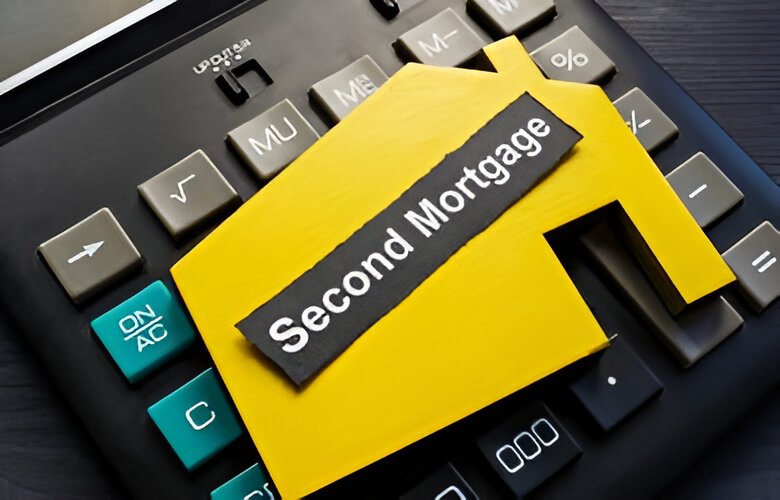What is Commercial Mortgage?
A commercial mortgage is a mortgage loan granted to the owner of a property that is not a residential home in Canada. It is sometimes one of the most significant financial investments a person makes in their lifetime.
Because your property serves as collateral, the lender has assurance that the loan will be repaid. You may be forced to provide multiple properties as collateral in some situations to make up for any shortfalls in available equity or your ability to qualify for the full amount you need.
An industrial building, office unit, apartment complex, shopping mall, storefront plus apartments, retail plazas, and hotels are just a few examples of commercial assets for which you might obtain mortgage financing.
A commercial mortgage could be in the form of a first, second, or third mortgage, similar to residential mortgages on a home, albeit first and second mortgages are far more frequent than third mortgages.
CMHC-Insured Commercial Mortgage Rates
Commercial mortgages are also covered by the Canada Mortgage and Housing Corporation (CMHC). The mortgage lenders are protected because CMHC will pay them if the business borrower defaults on the loan.

Given the low risk to lenders, CMHC insured commercial mortgage borrowers are provided the best rates. CMHC mortgages, however, are related to the Canadian Mortgage Bond (CMB) Yield, rather than the BBB corporate yield, as is the case with traditional commercial mortgages.
The CMB yield is typically 1%-1.5 percent higher than the 5-Year Government of Canada (GOC) Bond Yield. In addition, depending on your risk factor, your mortgage lender would impose a premium on top of the CMB yield. The premium is 0.4 percent to 2% of the total premium.
A CMHC mortgage rate is typically 1.4 percent to 3.5 percent higher than the yield on a 5-year GOC bond.
To qualify for a CMHC insured commercial mortgage for standard rental housing, you must meet the following criteria:
- The building must have at least five rental units
- The ability to guarantee the total loan value until you have 12 straight months of stable rents
- Have a maximum LTV of 85%
- Have at least five years of property management experience (or a reputable property manager)
- At least 70% of the floor area and loan value must be residential units
- You must have proven the ability in managing a similar size building
- Your net worth must exceed 25% of the loan value
Commercial Mortgage Terms
There are a variety of commercial mortgages available for various types of properties and use-cases. The particular terms of a business mortgage will vary from case to case due to the magnitude and complexity of commercial mortgages, as well as the difficulties of selling commercial properties.
Term Lengths
The length of a commercial mortgage might range from one to twenty-five years. Term lengths typically range from 5 to 20 years. Bridge financing is anything shorter than five years. When interest rates are low, commercial mortgage borrowers choose to lock in a long-term loan. If rates are predicted to fall shortly, customers may choose a loan with a shorter term.
Loan-to-Value (LTV)
Depending on the property type, commercial mortgages often have a loan-to-value ratio of up to 85 percent. Farmland or unoccupied lots may be limited to an LTV of as little as 50%. Residential mortgages, on the other hand, can have an LTV of up to 95%. Three factors contribute to the lower LTV:
- Borrowers will usually rely on cashflow from their property to make payments for the mortgage. If something happens to the property, both the value of the property and the borrower’s ability to pay will be affected.
- No mortgage insurance means the lender has to take on the full risk of the mortgage for higher LTVs.
- A less active and transparent market for commercial properties can mean valuations are only a “best guess”. Some property types such as rural lots are even more difficult to appraise, making it necessary for the lender to build in a valuation buffer.
Commercial Mortgage Broker
In Canada, a commercial mortgage broker can assist you in finding the best mortgage for your needs. They can also help you with the difficult process of acquiring a mortgage. They’ll help you submit paperwork like page-long environmental assessments and building condition reports, for example.
To get the best offer for you, a mortgage broker collaborates with large banks, trust companies, and credit unions across Canada. They may be able to assist you get a mortgage with cheaper interest rates than you could find on your own because of their knowledge in the mortgage market.
How to Get Approved for a Commercial Mortgage?
Obtaining a commercial mortgage or refinancing an existing property can be a difficult procedure. Our promise to you is to make this procedure as simple and painless as possible for you.
Due to the risk considerations for lenders, a business transaction necessitates more work and information than a residential transaction. Although most commercial transactions involve an appraisal, lenders may request an environmental study on the property and the land it sits on in specific situations.
Other considerations include lease agreements, tenant quality, property condition, income statements, and more.
Payment Options for a Commercial Mortgage in Canada
Commercial mortgage payment options are fairly comparable to those of residential mortgages. A variable interest rate combined with adjustable terms allows the borrower to pay off their mortgage at their own pace.
A fixed interest rate is the best option for a borrower who wants to make consistent monthly payments over the course of their term and is concerned about rising interest rates.
Overall, obtaining a commercial mortgage may appear difficult and daunting, but it does not have to be. Finding the perfect commercial mortgage solutions for businesses and personal needs can be simple with the help of our experienced and educated commercial mortgage agents.
Our commercial mortgage team can help you get approved for a commercial mortgage or equity loan that is perfect for you, whether you’re looking to acquire a commercial or mixed-use property or you currently own commercial buildings and need to pull out equity. Our team will work tirelessly to secure the best prices and terms for you.
Pros and Cons of Refinancing Your Commercial Mortgage
Pros
- Increase the worth of your home and you’ll be able to receive better rental and leasing prices. You can utilize the money you save by refinancing your current mortgage loan to maintain, restore, and improve your home. This will help you raise the value of your commercial property if you decide to sell it or refinance it.
- Increase the number of properties in your investing portfolio: To continue your development into the real estate investment market, use the money you take out of your commercial property as a down payment on the purchase of new investment properties or enterprises.
- Consolidate all of your other debts: If you own a business property and have a lot of high-interest debt, such as credit cards, you can use some of the available equity to pay down those debts and reduce your monthly payments. Credit card debt is particularly renowned for its exorbitant interest rates. You can get a substantially cheaper rate on an equity takeout loan than you can on a traditional loan.
- Invest in your company: If you need capital reserves or finance for your primary or other business and possess commercial real estate, you can take some of the potential equity from your commercial building and put it toward growing your company. Consider what you could achieve with some additional working cash in the development of your company.
- Obtain a lower interest rate and more favorable terms: You may be able to save a lot of money and cut your monthly payments by lowering your interest rate and improving your mortgage terms, depending on your existing mortgage rate and the rate that you would qualify for with a new mortgage. If you already have a first and second mortgage, you’ll need to refinance.
- Purchase a partner: You might be able to buy out or purchase back shares in the property or in a firm from a business partner with the extra cash.
- Tax Deduction for Corporations: The interest paid on a commercial mortgage can often be deducted from your corporation taxes. Saving money on taxes can have a significant impact on a company’s financial success. To learn more, speak with your accounting professional.
- Keep your money in the bank for a longer period of time: If you need money urgently, refinancing your business property may be one of the best possibilities. It could be one of your few viable options because selling it could result in a large capital gains tax bill.
Cons
- Monthly payments have been increased. If you increase your mortgage balance, your monthly payments may increase as well. When you choose to refinance, the size of the new mortgage, the terms and circumstances, and the interest rate that you qualify for will all play a role.
- The interest rate has been raised. You may wind up with a higher interest rate if you choose to refinance your mortgage, depending on your existing interest rate and the rate you would qualify for.








